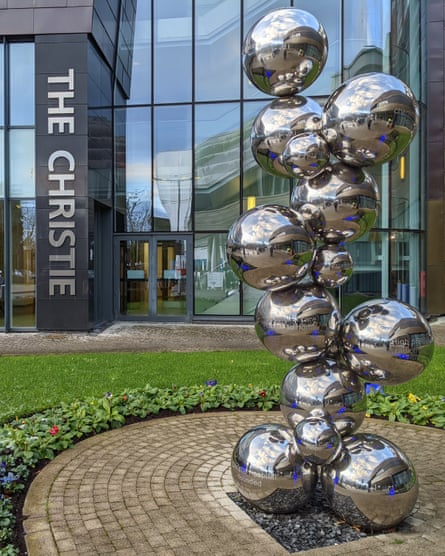Patients with rare cancers given hope by UK-led ‘drug-match’ trial
Lisa Park was 48 years old when she was admitted to the emergency room in 2019 with worsening bouts of abdominal pain. Her eventual diagnosis was unexpected. She was told she had gallbladder cancer, a rare but serious disease that usually only affects older people.
Surgery and chemotherapy eradicated the tumors, but after a few months the cancer returned. “I was given a year to live,” Park said. It was a grim diagnosis, but her outlook has recently taken an unexpected turn for the better.
Park – who is married and lives in Edinburgh – was recently asked to take part in a revolutionary British research program called ” Determine. It was created for people with rare tumors in the hope that drugs approved for more common cancers could be used as a new treatment.
“By definition, rare cancers are uncommon,” said one of the project leaders, oncologist Matthew Krebs from the University of Manchester. “However, there are so many of them that in total they account for about 20% of all cancers diagnosed worldwide each year – more than any single type of cancer, including lung, breast and colorectal cancer.”
The overall impact of rare cancers on healthcare is therefore significant, but few treatments are currently available to help patients. Determine was created to find out whether drugs already prescribed by doctors for more common cancers could be of benefit to patients with rare cancers for which they are not approved.
The trial is led by the University of Manchester, sponsored by the Cancer Research UK Center for Drug Development and involves several other leading medical centers in the UK. The ultimate goal is to use old drugs against new types of cancer.

The key point is that with recent advances in DNA analysis, scientists have discovered that some very rare tumors have abnormalities that could make them susceptible to treatments developed for common cancers. “We will be able to accelerate the approval of all promising medicines, opening the door to treatments for patients who have had limited options in the past,” said Iain Foulkes, executive director of research and innovation at Cancer Research UK .
The approach has already produced promising results for Lisa Park. She received treatment developed for some types of breast cancer from Christie NHS Foundation Trust in Manchester and it has reduced her tumors, according to recent scans. “I know I still have a journey ahead of me, but my cancer has been reduced to manageable tumors and that was a very encouraging result,” Park said.
She’s not alone either. Another patient, Simon Robey from Nottingham, was recently diagnosed with rare salivary gland cancer. Despite surgery and radiotherapy, the cancer spread so he was asked to join Determine. “After the tests I was given a drug normally used to treat breast cancer and in my case the response was excellent and the scans showed big improvements. It’s like a fairy tale. This drug keeps me alive.”
